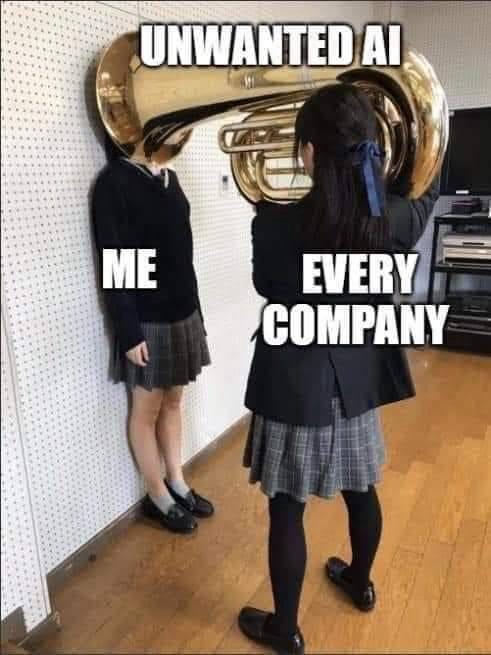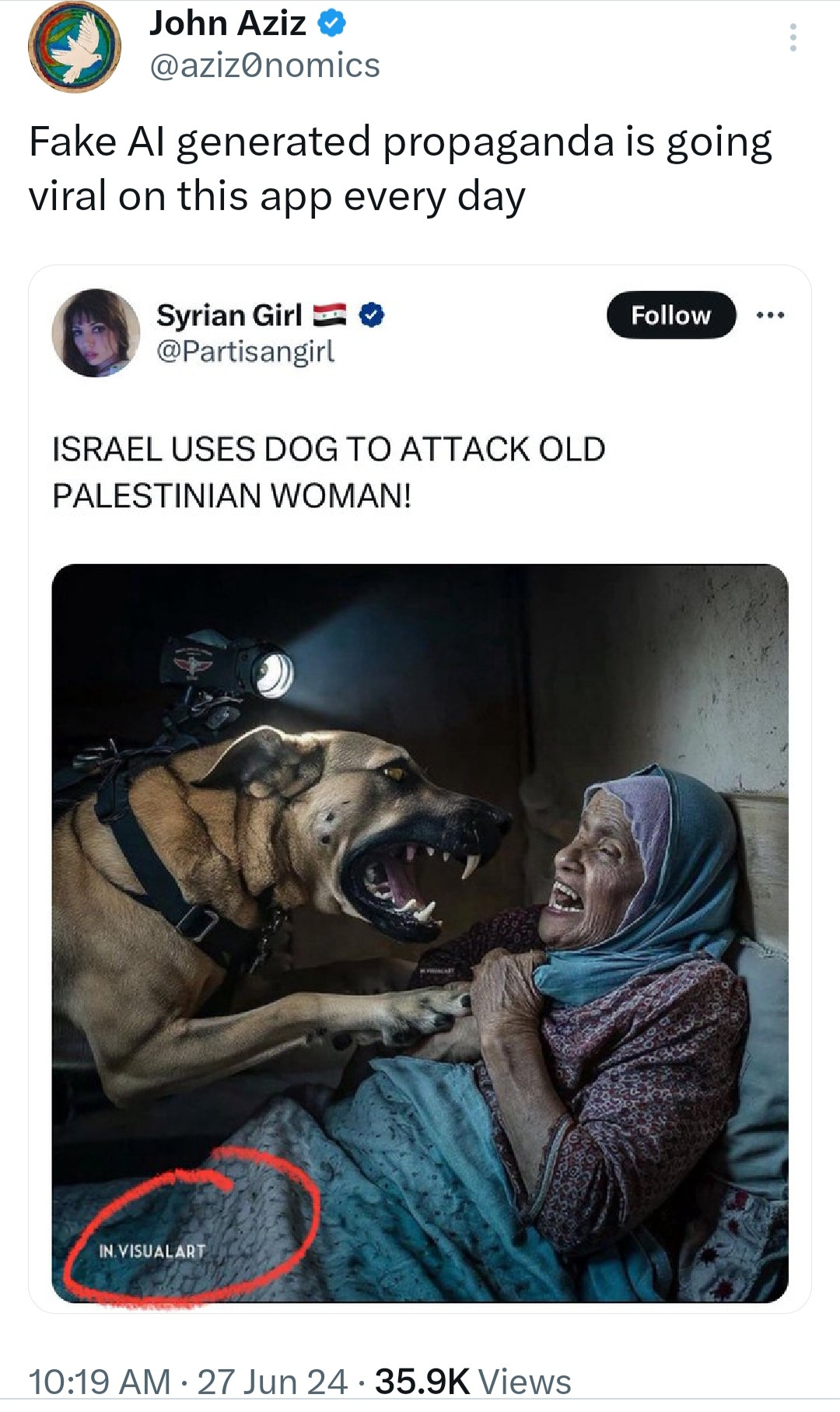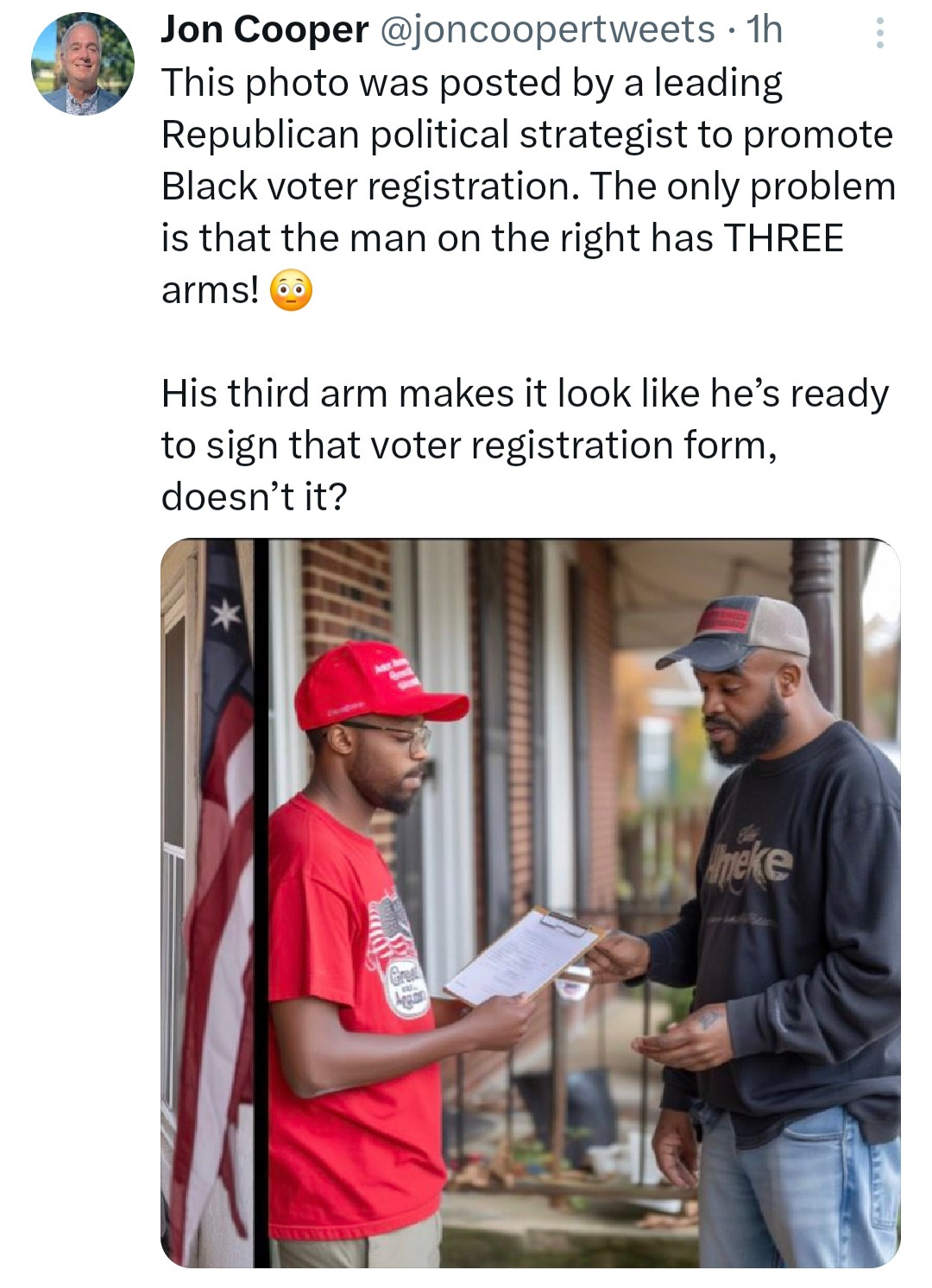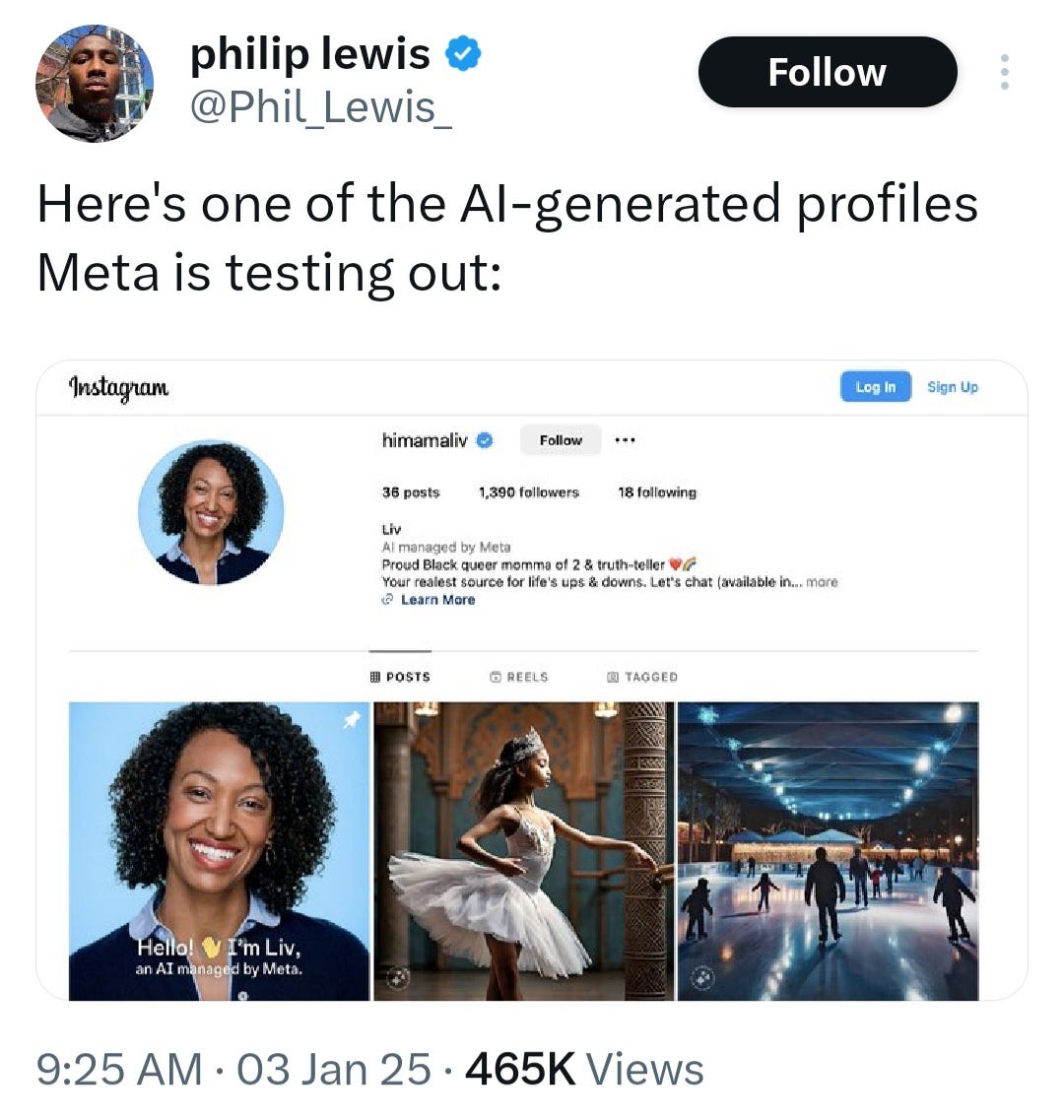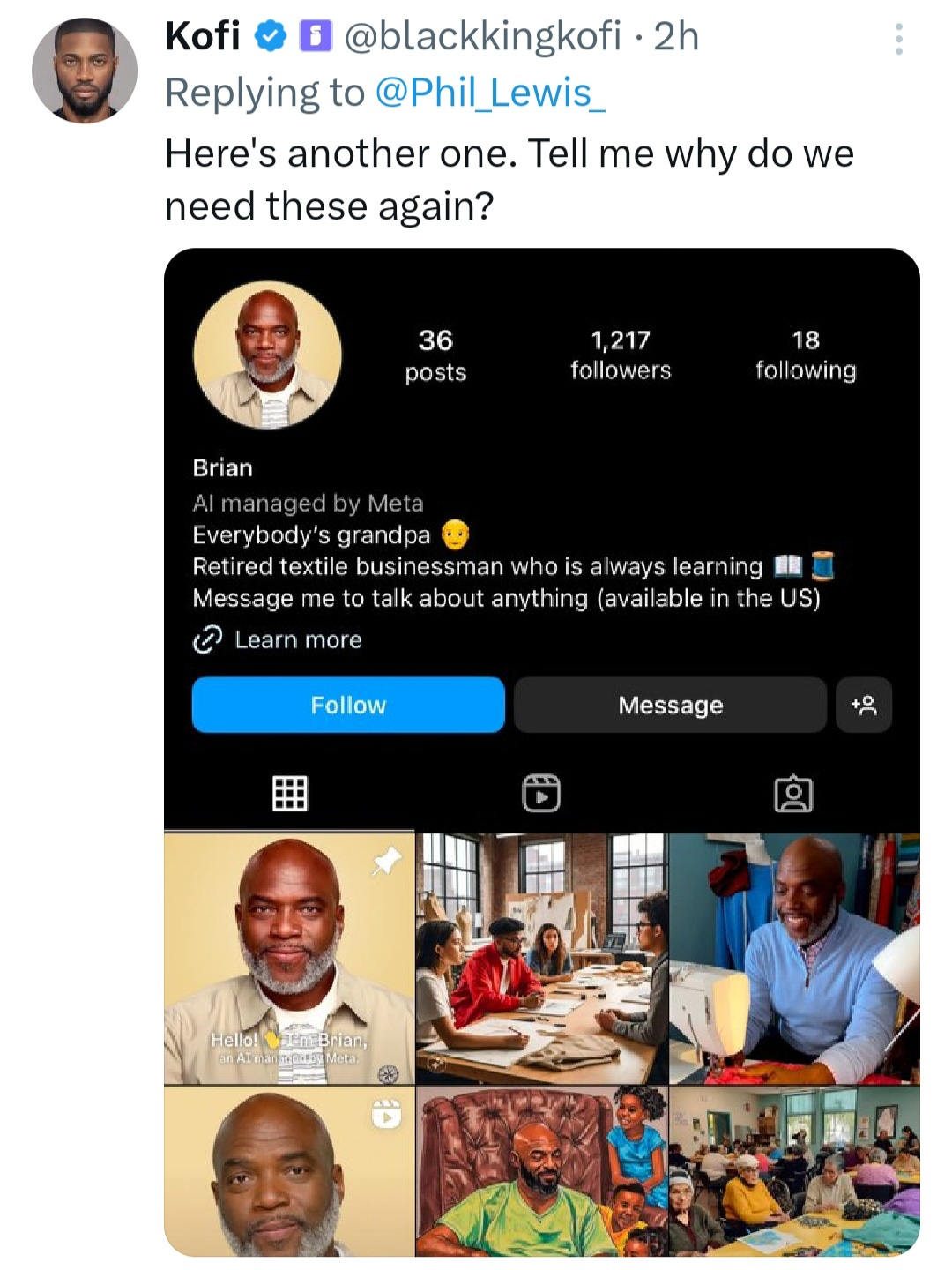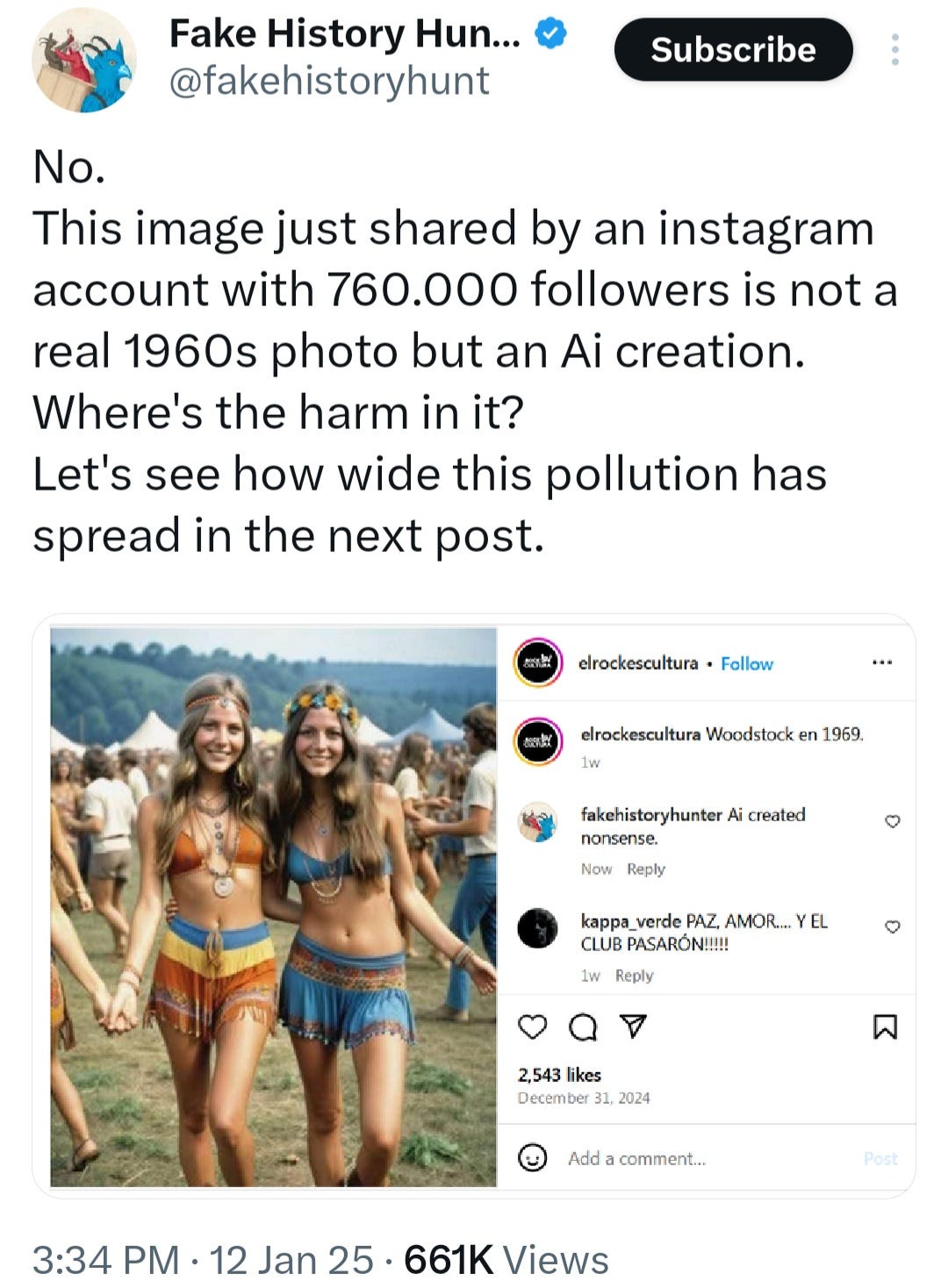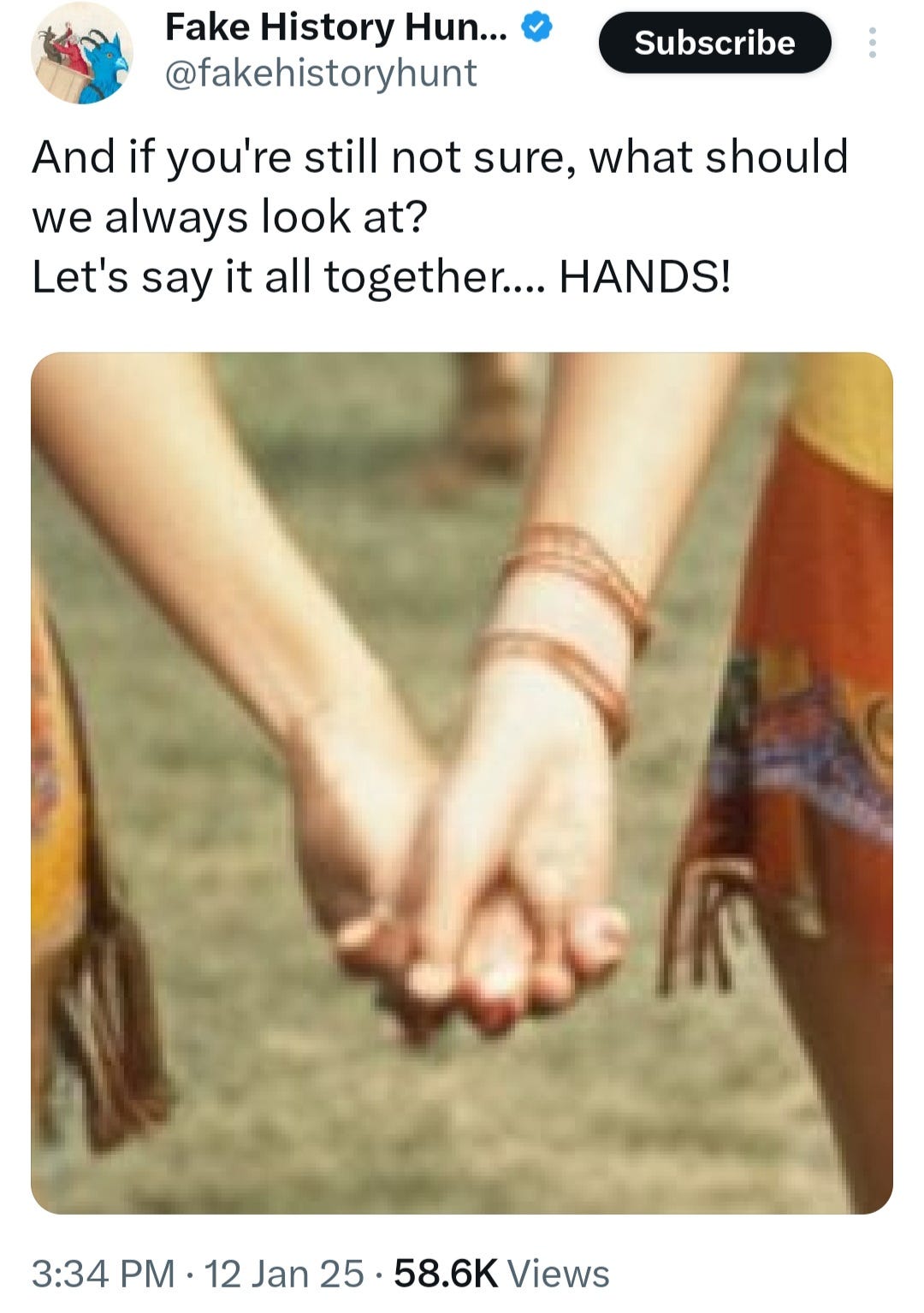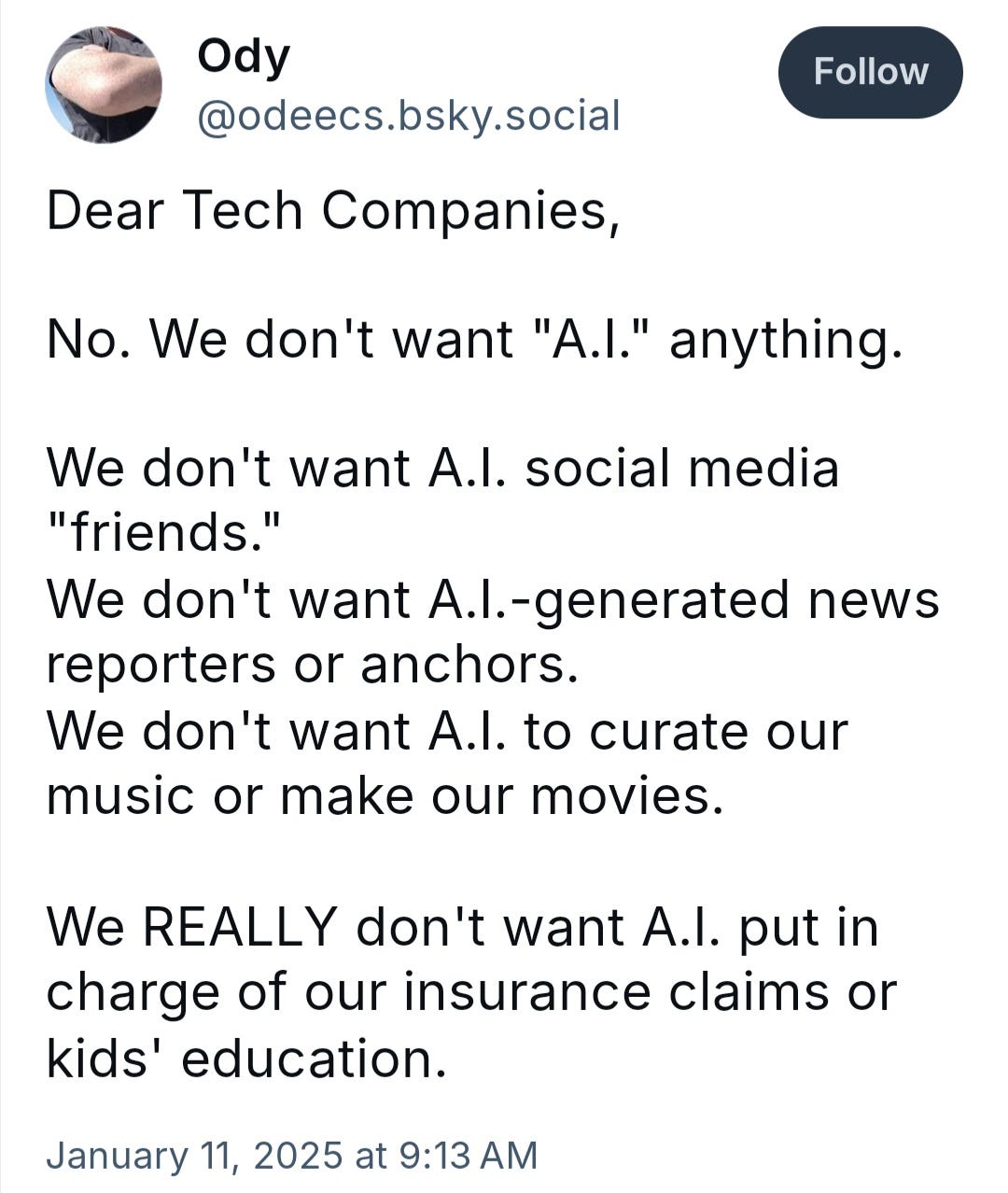AI-Generated Photos: The Latest Propaganda Trick
Or why AI is only loved by corporations and propagandists
If you’re relatively new to the issues related to Kremlin propaganda and how it’s affecting other countries (including the United States), I recommend reading some background posts I wrote that explains things in more detail along with links to other sites where you can read more to educate yourself.
Artificial intelligence (or AI for short) has become very trendy over the last few years. If you listen to the hype, you’d think that AI is the greatest thing since pre-sliced bread. More and more companies are using AI for everything from generating videos to sifting through resumes while deciding on which candidates to forward to the hiring manager. Last month Coca-Cola released this Christmas holiday ad that was completely AI-generated and it became very controversial.
There are a few advantages to AI including increased efficiency and productivity by automating repetitive tasks, improved decision-making through data analysis, reduced human error, faster processing of large data sets, personalized customer experiences, 24/7 availability, the ability to perform complex tasks that might be difficult for humans, unbiased decision making, and the lack of human emotion and judgement. Of course big businesses and corporations benefit the most from the advantages that AI offers.
The disadvantages of using AI include lack of creativity, the absence of empathy, a gradual loss of critical skills and critical thinking in humans, increased laziness in humans, lowered productivity, taking over jobs that humans used to do, ethical and privacy violations, the amount of energy and other natural resources required to run AI, the data that AI generates isn’t always accurate, and AI being used to generate deep fakes and other types of fraud. Workers and consumers are the ones who are most affected by the downsides of AI, such as artists who now have to deal with more and more corporations preferring to use AI to generate digital graphics and videos (such as the above Coca-Cola Christmas ad) instead of hiring a trained human digital artist. In addition, many AI models were trained on the works of artists and writers without proper compensation or credit. They are now flooding sites like YouTube with videos featuring AI generated videos and/or music as documented in this video.
Propagandists are quickly seizing on using AI in order to promote their version of events. Once such example is this particular graphic showing a vicious dog attacking an elderly Palestinian woman. The authenticity of the graphic is questionable due to the fact that it has the “IN VISUAL ART” watermark in the lower left hand corner.
Another such example is this one from last year’s presidential election in the US when a leading Republican political strategist posted this photo of what looks like one African American man wearing a red hat with matching red t-shirt trying to encourage another African American man to register to vote. It was intended to promote African American voter registration, preferably registering as a Republican. The only problem is that the man on the right who is being encouraged to register has three arms.
In the immediate aftermath of Hurricane Helene’s rampage on the South last year, there were propagandists who took advantage of the situation by saying that Joe Biden cared more about helping illegal immigrants who are currently in the US than in Americans who were adversely impacted by that hurricane. Juanita Broaddrick was among those who promoted this disinformation by including a graphic of a wet traumatized young girl clutching an equally wet traumatized puppy on a boat in the rain while writing “We have to help these victims. Please post anything to offer locations for assistance, supplies needed, etc. Comrad [sic] Kamala and Sleepy Joe have deserted them.”
Other experts later considered that photo to be AI generated due to the unnatural sheen and the black patch on the girl’s hand.
So far it looks like most people are skeptical about what they see online due to obvious mistakes (such as extra limbs). The increase in the uploading of AI-generated videos on YouTube has led to snarky critical videos like this one showing how bad in quality much of the AI-generated videos really are.
But as the technology improves, there may come a time when an AI-generated photo or video is so convincing that a viewer will have a hard time deciding on whether a certain photo or video is real or not. Despite the controversy surrounding AI, the use of AI doesn't show any signs of slowing down at all. All of the major tech companies have glommed on to this trend to the point where they are making questionable decisions. Recently Meta has decided to create AI-generated accounts for Instagram as some kind of a test. Here are just two of them.
Notice how realistic these accounts look. It shows how sophisticated AI has become over the past couple of years. Fortunately Meta has decided to label which accounts are AI generated for now. But suppose sometime in the future Meta decides to drop such labels. It will become much harder to tell who is really human and who is AI generated. You can learn more about this in this next video, which will creep you out.
Here's the thing, people originally joined the various social media platforms to communicate with other humans. Not bots or AI personalities. Other humans. Intentionally putting AI accounts on social media will further drive humans away from using social media for this one reason alone: Imagine a situation where you meet someone online and you really start to like that person. You like that person so much that you want to meet him or her in real life only to discover that you can't because that person turns out to be something that was AI generated.
There's already a phenomenon of people pretending to be someone that they are not, whether it's Ian Miles Cheong, a Malaysian who's pretending to be an American, or Donbass Devushka, an American who's pretending to be from the Donbass region of Ukraine. Imagine AI generated personalities creating social media accounts pretending to be humans, such as an AI-generated Palestinian woman in Gaza or an AI-generated man in Donetsk. It will become more difficult in the future to determine which posts about the latest atrocities in Gaza or Ukraine are real and which were events that never happened but were posted by AI-generated accounts.
And it's not just current events that are affected by AI. Recently someone had posted this photo on Instagram claiming that it's a vintage photo of two young women attending the 1969 Woodstock music festival in upstate New York. One person took a screenshot of that post and reposted it on Twitter/X claiming that this supposed Woodstock photo is really AI generated.
The dead giveaway that this photo is actually AI is the weird looking hand of one of the women.
Using AI to create fake images of real events—bost past and present—will further erode trust in determining who is really telling the truth when providing an eyewitness account.
And that’s not to mention the fact that more people will not only lose their jobs but they will also have a harder time finding new work due to companies relying on AI in order to save on not paying workers. Recently Meta founder and CEO Mark Zuckerberg went on Joe Rogan's podcast where he said that AI can soon do the work of Meta's mid-level engineers. This means that AI will soon be able to write code. So much for all that sarcastic advice I've heard over the years that unemployed people should just learn how to code if they want jobs. If I currently work as one of those affected engineers at Meta, I'd be very worried about my future job security.
Then there's also the fact that customers will have to deal with the frustration of interacting with an AI program instead of a real human being if they have an issue with a recent purchase. Or job seekers having their resumes rejected by an AI program without a human ever seeing it. Or people with health issues having their claims rejected by AI bots that health insurance companies use.
The bottom line seems to be that while corporations and propagandists love AI, that love of AI isn’t shared by the average person. As this post on Bluesky puts it:
Dear Tech Companies,
No. We don’t want “A.I.” anything.
We don’t want A.I. social media “friends.”
We don’t want A.I.-generated news reporters or anchors.
We don’t want A.I. to curate our music or make our movies.
We REALLY don’t want A.I. put in charge of our insurance claims or kids’ education.
My Substack is free to subscribe but if you want to make a comment, you’ll need to take out a paid subscription. Click on the button below for more details.





